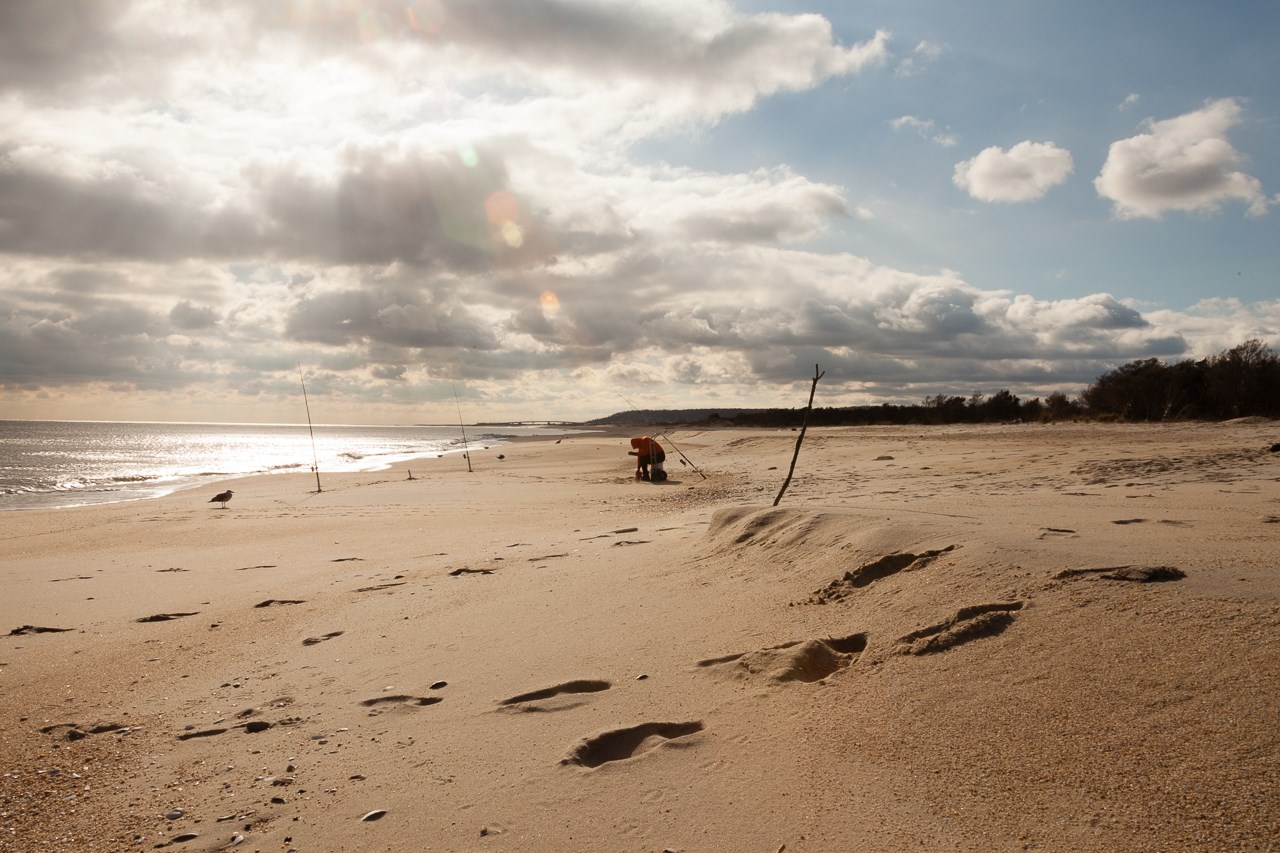
NPS Photo What comes to mind when you think about fishing? Patience, relaxation, challenge, and memories are a few words often associated with fishing. You will find all that and a sense of stewardship, conservation, and preservation on this page. We want you to have an enjoyable time during your visit, and for those who come after you to fish. Take some time to explore, learn what the park has to offer and learn your responsibilities before casting a line or flicking a fly into the water. Fishing Access PermitsSaltwater fishing is the only type of fishing allowed at Gateway. No license is required for saltwater fishing, but there is a saltwater registry for both New York and New Jersey. Permits are required to park in many places throughout the park. Permits are also required to park after hours at any part of the park. Off road vehicle parking permits are required for the Breezy Tip Point. They are also valid in other areas of the park where the fishing/parking permit is honored (paved lots only). Two Wheel Drive parking permits are required at locations and times listed below. Please note that there are no discounts for these parking permits for any holders of special passes (such as access, senior, or military). Parking/After Hours Access for Fishing/2 Wheel Drive (SAHO, JABA, STIS)Fishing Access Permits provide after hours and parking access for fishing at designated locations throughout Gateway.
Jamaica Bay Unit
Off-Road Vehicle Permits (Jamaica Bay Unit, Breezy Point Tip)The Breezy Point Tip Off Road Vehicle (ORV) Permit for Fishing is a specialized permit necessary to access the sand road, sand lot and Breezy Point shoreline for the purpose of fishing. These are available in limited numbers. A 4-wheel drive vehicle is required. All-wheel drive vehicles are not recommended. Vehicles with 4-wheel drive and high clearance are best suited for off road driving due to the soft and sandy conditions.The ORV permit is also valid in other areas of the park where the fishing/parking permit is honored (paved lots only).
Fishing RegulationsFishing regulations for Gateway National Recreation follow 36 CFR 2.3 and those set by the States of New York and New Jersey.
Fish Consumption Advisories in National Park WatersThe Environmental Protection Agency, states, territories, and tribes provide advice on fish and shellfish caught in the waters in their jurisdiction to help people make informed decisions about eating fish. Advisories are recommendations to limit your consumption of, or avoid eating entirely, certain species of fish or shellfish from specific bodies of water due to chemical or biological contamination. Fish is part of a healthy balanced diet, but eating wild fish and shellfish caught in park waters is not risk free. Parks are “islands”, but the much larger “ocean” that surrounds them affects the natural resources inside a park. Other aquatic toxins are the result of natural biological processes. Also, chemical contaminants that originate outside of park boundaries can come into parks. Mercury is an example of a toxin originating outside a park that can find its way into a park. Mercury exists naturally in some rocks, including coal. When power plants burn coal, mercury can travel in the air long distances before falling to the ground, usually in low concentrations. Once on the ground, microorganisms can change this elemental mercury to methyl mercury. This type of mercury can build up in animal tissues, and it can increase in concentration to harmful levels. This high concentration can occur in large predatory fish - those often pursued and eaten by anglers. Studies have shown that fish in some National Park System waters have mercury levels that may be a concern to people who regularly eat a lot of fish. Fishing Throughout the National Park ServiceWe invite you to visit the Fish and Fishing website for more information about fish and fishing in the National Park Service. You will learn about conservation, different fish species, and parks that offer fishing. |
Last updated: March 4, 2024
